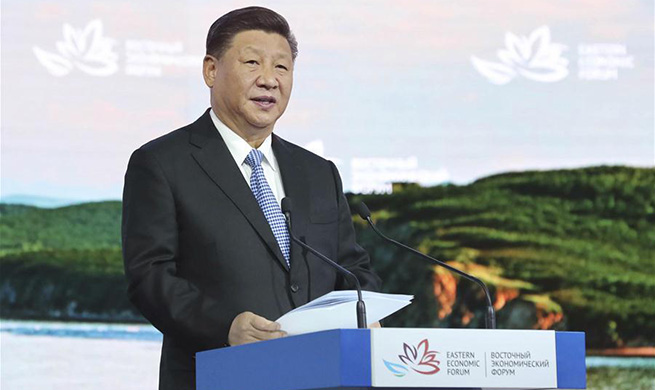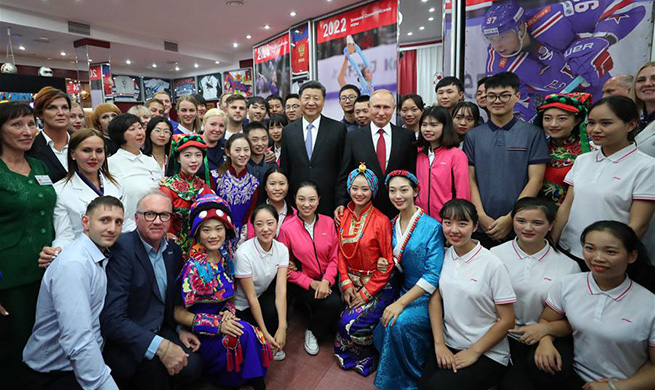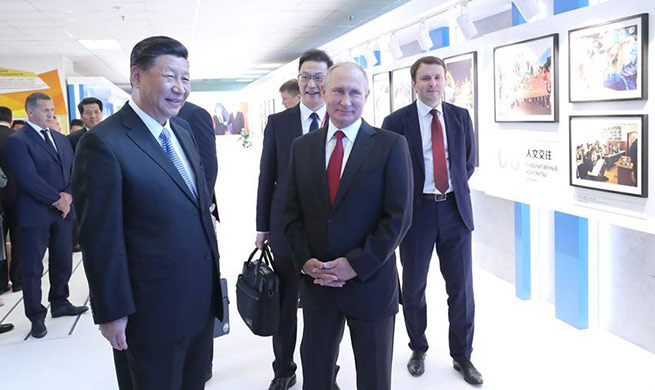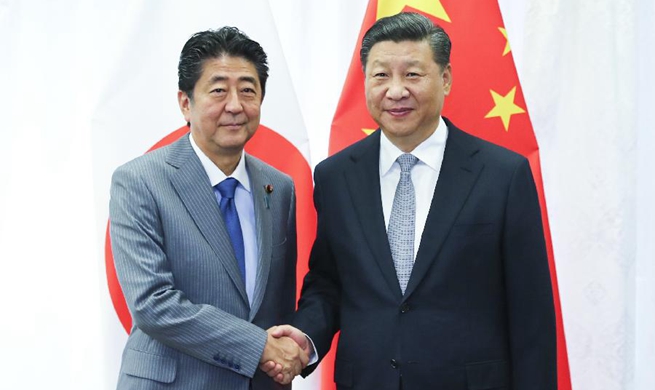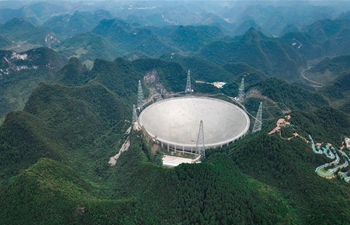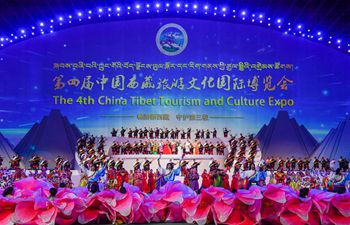KATHMANDU, Sept. 12 (Xinhua) -- China's Belt and Road Initiative has offered a unique opportunity for Nepal and China to explore vast potentials for development, Nepali Prime Minister K.P. Sharma Oli said here on Wednesday.
Speaking at the inaugural session of the International Conference on "Belt and Road Initiative: Opportunities and Implications for Nepal and the Region" in Kathmandu, the Nepali prime minister said the Belt and Road Initiative can serve as an important catalyst to realize Nepal's development agenda and goals to achieve economic prosperity.
He said the initiative can be instrumental in addressing development bottlenecks, mobilizing finance development needs, and ensuring win-win cooperation as a framework to spur investment and enhance connectivity.
The prime minister said Nepal and China are committed to enhancing connectivity encompassing vital components including ports, roads, railways, aviation and communications.
"Cooperation in trade and connectivity will create jobs for the people, multiply economic opportunities and enhance the productivity of the entire economy. These are vital components for sustainable regional cooperation as well," he said, amidst the presence of senior government officials, diplomats, economic experts, and academicians from various countries.
Nepal and China signed a Memorandum of Understanding on bilateral cooperation under the framework of the Belt and Road Initiative in May 2017.
The Belt and Road Initiative, proposed by China in 2013, aims at building a trade and infrastructure network connecting Asia with Europe and Africa along the ancient trade routes.
While the increasing protectionist tendencies are eroding the rule-based multilateral trading system, the Belt and Road Initiative can be an option for openness and shared benefits, the prime minister said.
He said the transformative scale and scope of the initiative has opened up plethora of opportunities to integrate the economies, to connect the markets, and to invest in infrastructure.
"While the locus of economic development shifts to Asia, BRI can be an engine for a new wave of globalization," Oli said.
Meanwhile, during separate sessions of the same event on Wednesday, experts from various countries also exchanged views on the Belt and Road Initiative.
Professor B.R. Deepak at the Jawaharlal Nehru University in India said India should join the Belt and Road Initiative, saying that the strong cooperation between China and India will benefit the people of entire South Asia.
"BRI is fundamental to the global industrial chain and those who join it will reap the benefits," he said.
Minhas Majeed Khan, assistant professor of international relations at University of Peshawar in Pakistan, said the China-Pakistan Economic Corridor (CPEC) under the Belt and Road Initiative is going to greatly contribute to Pakistan's socio-economic development through building of railways, highways, pipelines and other connectivity projects, adding that the CPEC is going to become a game-changer in South Asia.
Prapat Thepchatree, professor at the Thammasat University in Thailand, said the Belt and Road Initiative is bridging Thailand with other ASEAN ( the Association of Southeast Asian Nations) countries through railroad connectivity.






